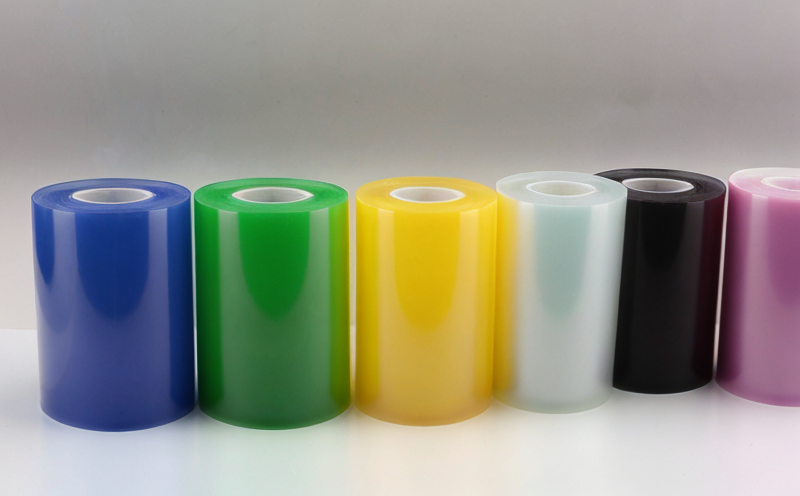DIN EN ISO 6383 Tear Resistance Testing of Plastic Films
The DIN EN ISO 6383 standard provides a standardized method to determine tear resistance in plastic films. This test is critical for ensuring the durability and reliability of materials that may be subjected to tearing forces, such as packaging films, agricultural films, and industrial coverings.
Tear resistance testing evaluates the material's ability to resist tearing under specified conditions. The standard specifies a method where a pre-determined length of film is placed between two jaws, which are then pulled apart at a constant rate. The force required to initiate or continue tearing is recorded as an indicator of tear resistance.
The test setup typically includes a tensile testing machine with grips that can accommodate the specific dimensions required by the standard. Specimens are cut from the film according to ISO 6383, which defines the geometry and dimensions based on the type of plastic film being tested.
The force-displacement curve generated during the test provides insights into how the material behaves under tensile stress. This data is crucial for quality control, ensuring that materials meet specified performance requirements in various applications.
Understanding the tear resistance properties of plastic films helps manufacturers and users to select appropriate materials for their specific needs. For instance, a higher tear resistance value indicates better durability against mechanical stresses, which is essential for packaging films that need to withstand handling during transport.
Compliance with international standards like DIN EN ISO 6383 ensures consistency across different manufacturing processes and helps in maintaining global trade standards. This standardization is particularly important in industries such as food processing, where the integrity of packaging materials directly impacts product safety and quality.
The test results can also be used for research and development purposes to improve material formulations or design new products that meet specific performance criteria. In addition, the data obtained from this testing method can help in selecting suitable materials for various industrial applications, ensuring optimal performance under diverse environmental conditions.
Benefits
The primary benefit of conducting DIN EN ISO 6383 tear resistance testing is the assurance of material integrity and reliability. This test helps in identifying potential weaknesses within plastic films, allowing for corrective measures to be implemented before any issues arise during production or use.
By ensuring that materials meet the specified tear resistance criteria, manufacturers can enhance their product quality and reputation. Compliance with international standards also facilitates smoother trade processes, as it aligns with global regulatory requirements.
The test results provide valuable insights into material performance under various conditions, which is essential for continuous improvement in manufacturing processes. This knowledge can lead to the development of more robust and efficient products that meet or exceed customer expectations.
Furthermore, the standardization provided by DIN EN ISO 6383 helps in maintaining consistency across different batches of materials, ensuring uniform quality across production runs. This reliability is crucial for industries where consistent performance is critical to business success.
Why Choose This Test
- Increased Material Integrity: Ensures that plastic films can withstand the stresses they may encounter during use, enhancing product reliability.
- Compliance with International Standards: Guarantees that materials meet global regulatory requirements and industry benchmarks.
- Data-Driven Decision Making: Provides valuable insights into material performance under specified conditions, aiding in informed decision-making processes.
- Enhanced Product Quality: Helps manufacturers to improve their products by identifying and addressing potential weaknesses early on.
Use Cases and Application Examples
In the packaging industry, the DIN EN ISO 6383 test is used for evaluating tear resistance in flexible packaging films. This ensures that packages can withstand the stresses encountered during filling, sealing, and transportation without compromising product integrity.
Agricultural films are another application where this testing method is crucial. The durability of these films affects their effectiveness in providing protection to crops against adverse weather conditions. By ensuring adequate tear resistance, farmers can benefit from longer-lasting agricultural coverings that enhance crop yields.
In the industrial sector, plastic films used for covering buildings or structures must be robust enough to withstand environmental elements such as wind and rain. Testing according to DIN EN ISO 6383 helps in selecting materials that meet these stringent requirements, ensuring structural integrity over extended periods.
For R&D purposes, this test provides a standardized method to compare different material formulations or designs. This allows researchers to identify the most effective approaches for improving tear resistance properties of plastic films.





